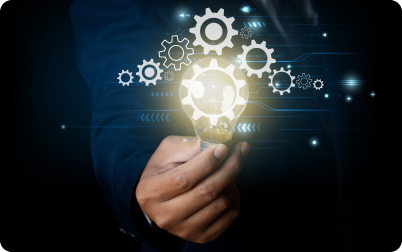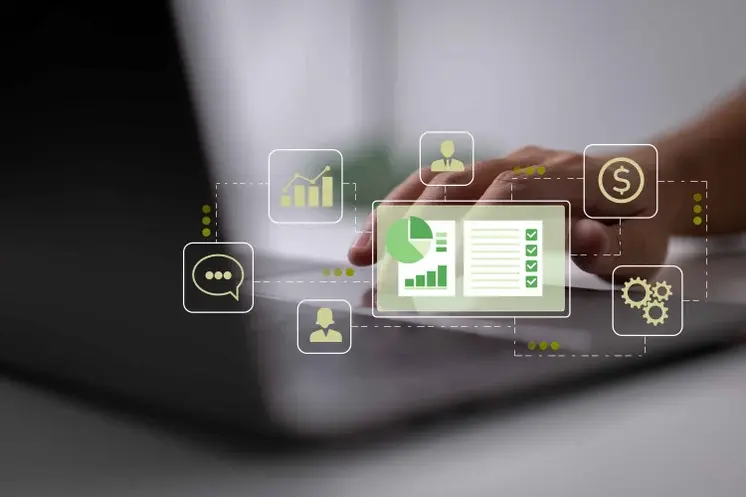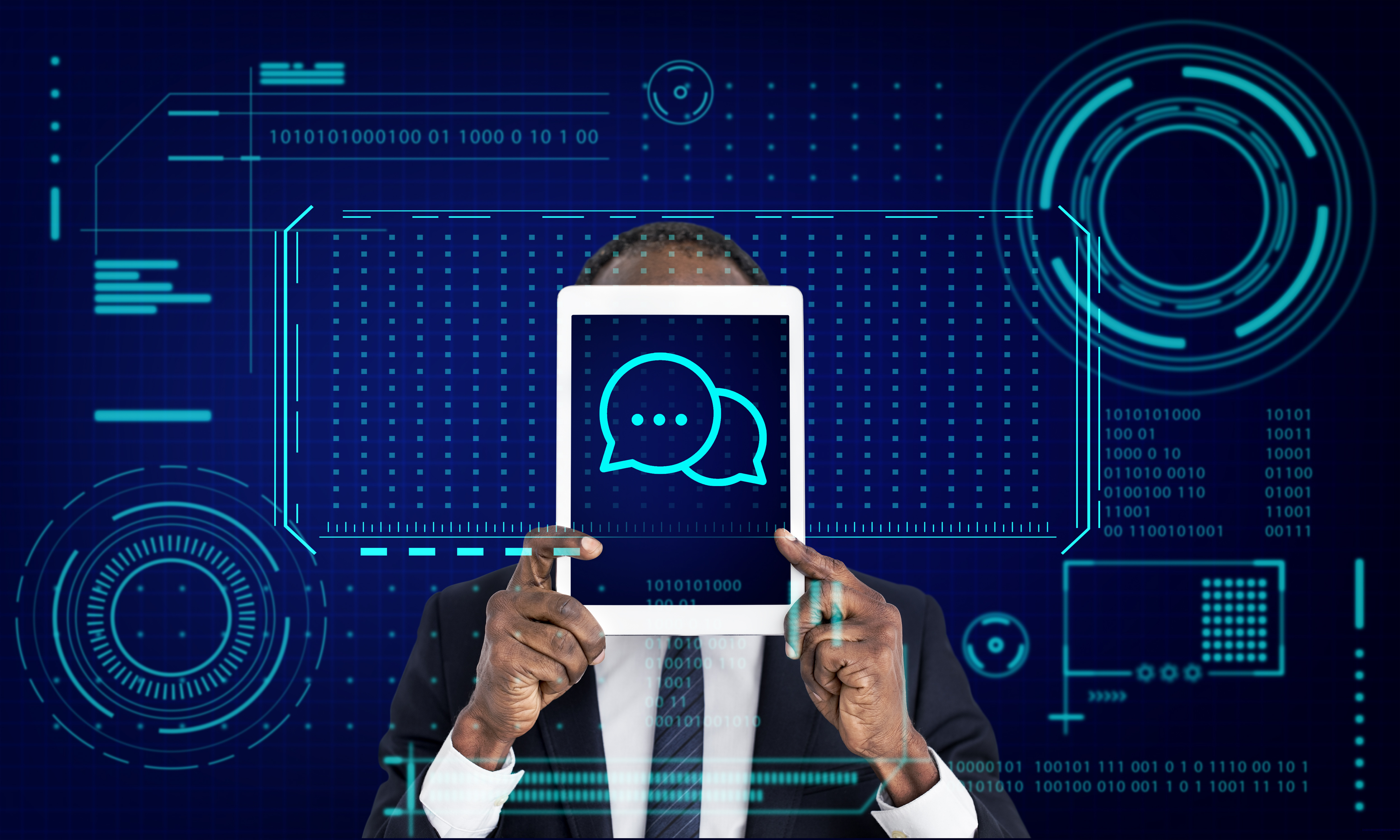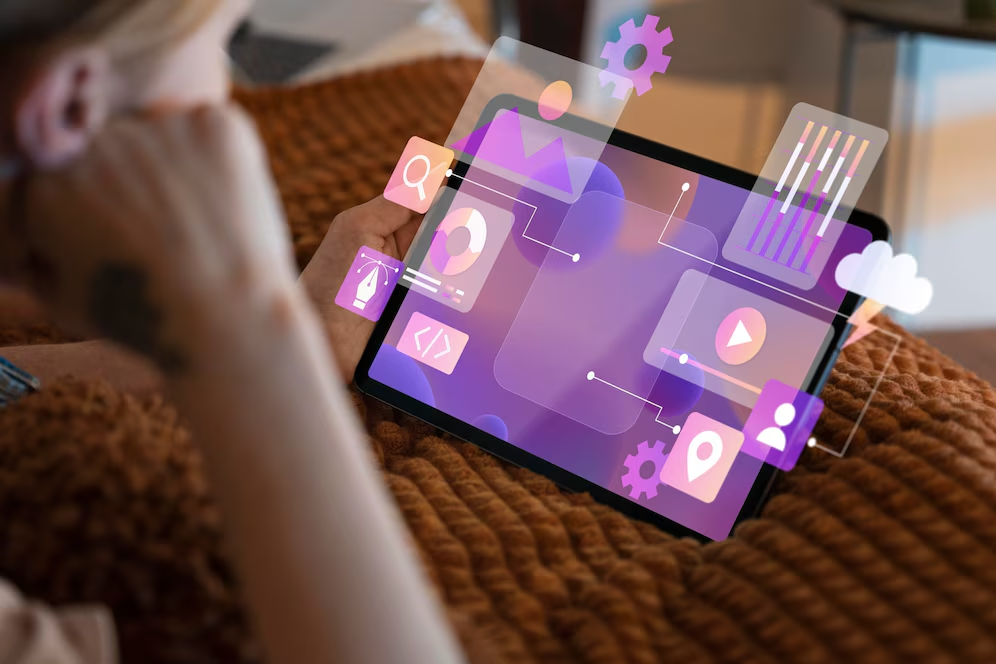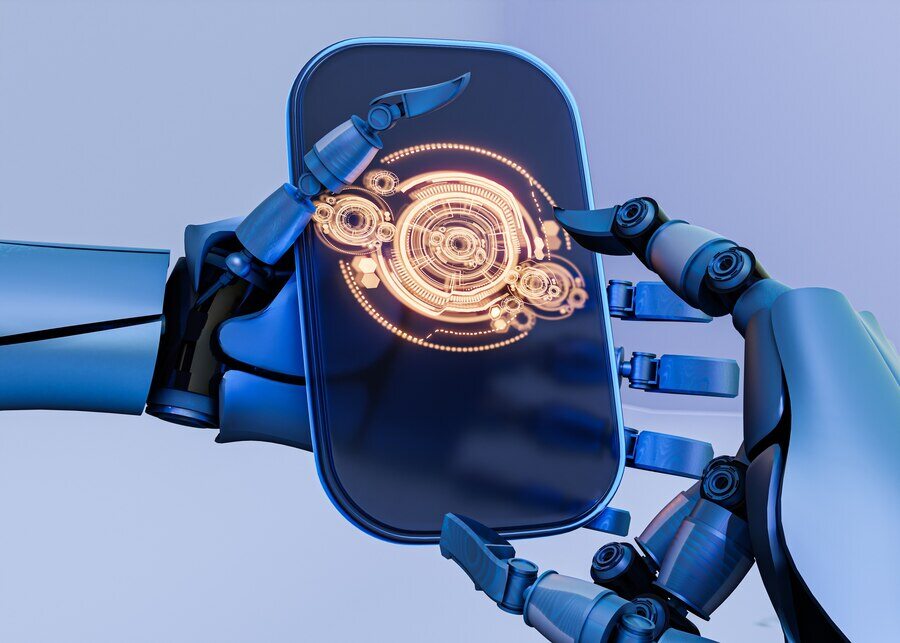How Does Generative AI Work?
Generative AI, a subset of artificial intelligence, uses advanced machine learning models to create new content, patterns, or solutions by learning from vast amounts of existing data. In the context of AI in HR, this technology can analyze employee data, company needs, and other inputs to generate meaningful insights, recommendations, and even automated responses. Unlike traditional AI, which is typically designed to recognize patterns, generative AI can create content or suggest actions that have never been explicitly programmed.
For example, AI HR software can use generative models to draft job descriptions, create personalized employee training programs, or even generate candidate screening questions tailored to specific roles. This capability allows HR teams to save time on repetitive tasks, improve the accuracy of their decisions, and offer more customized experiences for employees.
The strength of AI for human resources lies in its ability to handle large datasets and produce actionable outputs that support HR functions. Whether it's predicting employee turnover, recommending learning resources, or even crafting performance reviews, generative AI enhances decision-making with data-driven insights.
How Does GenAI Impact HR?
Generative AI is making a significant impact on the HR industry by automating tasks, improving recruitment processes, and enhancing employee experiences. As organizations look for innovative solutions, AI for human resources is increasingly becoming a key tool for HR departments. According to a recent Gartner survey, 38% of HR leaders are currently piloting or planning to implement generative AI in their organizations, underscoring its growing importance in transforming HR practices. This technology enables HR teams to make smarter, data-driven decisions while reducing time spent on manual tasks.
Key impacts of AI in HR include:
- Enhanced Efficiency: Automates administrative tasks like resume screening and onboarding, allowing HR teams to focus on strategic initiatives.
- Improved Recruitment: AI-driven tools analyze candidate data to match skills with job requirements, streamlining the hiring process.
- Personalized Employee Development: AI customizes learning and development programs based on individual performance and career goals.
- Data-Driven Decision Making: Provides insights into employee engagement, retention, and performance, aiding in informed decision-making.
- Cost Reduction: By automating processes and improving efficiency, AI helps reduce operational costs in HR departments.
Benefits of Using AI in HR
Integrating AI in HR brings a host of advantages that can significantly improve HR processes, reduce errors, and enhance overall business performance. By leveraging AI HR software, organizations can streamline operations and offer better services to both employees and management.
- Time-Saving Automation: AI automates routine HR functions like scheduling interviews, processing payroll, and handling employee queries. This drastically reduces the time HR teams spend on manual tasks, allowing them to focus on higher-value activities such as strategic planning and talent development.
- Advanced Talent Acquisition: With AI for human resources, hiring teams can better assess candidate skills, cultural fit, and potential for success within the organization. AI tools can quickly analyze resumes, interview data, and social media profiles to provide insights, reducing time-to-hire and improving recruitment outcomes.
- Personalized Employee Engagement: AI can track employee performance and engagement, offering tailored recommendations for improvement and growth. This personalized approach helps boost employee satisfaction and retention by addressing specific needs, learning preferences, and career aspirations.
- Smarter Workforce Planning: By analyzing historical and real-time data, AI can predict staffing needs, employee turnover, and workforce trends. This enables HR teams to proactively plan for future demands, manage talent gaps, and optimize their workforce.
- Improved Compliance and Risk Management: AI HR software helps ensure compliance with ever-evolving labor laws and regulations. AI can automatically monitor and flag potential compliance issues, reducing the risk of costly fines or legal problems.
- Better Diversity and Inclusion: AI-powered recruitment tools can help reduce unconscious bias in the hiring process, promoting a more diverse and inclusive workplace. By focusing solely on data-driven insights, AI ensures that every candidate is evaluated fairly based on skills and experience.
Generative AI HR Use Case
Generative AI is being used in HR for a variety of tasks, ranging from recruitment to employee development. By leveraging advanced algorithms, AI HR software can automate, predict, and enhance HR processes. Here are some key use cases where generative AI is making an impact:
|
HR Task
|
Use Case
|
Benefit
|
|
Recruitment and Screening
|
Generative AI analyzes resumes and generates personalized job descriptions.
|
Reduces time-to-hire and ensures better candidate matches based on data-driven insights.
|
|
Employee Onboarding
|
AI generates personalized onboarding documents and training materials.
|
Streamlines the onboarding process, making it quicker and more tailored for new employees.
|
|
Performance Management
|
AI creates customized performance review templates and feedback.
|
Helps managers provide more constructive, data-backed feedback, improving employee development.
|
|
Employee Engagement
|
AI generates engagement surveys and feedback prompts.
|
Provides real-time insights into employee sentiment, allowing HR to address issues proactively.
|
|
Learning and Development
|
AI curates personalized training programs based on employee skills.
|
Enhances learning by offering customized development paths, improving skill growth and retention.
|
|
Payroll and Benefits
|
AI generates automated payroll calculations and benefits summaries.
|
Reduces errors, ensures timely payments, and simplifies payroll administration.
|
ROI of GenAI in HR
The return on investment (ROI) for implementing Generative AI in HR is significant, as it directly impacts both operational efficiency and the bottom line. By automating repetitive tasks such as recruitment, payroll processing, and employee queries, AI HR software reduces the time HR teams spend on manual work, leading to increased productivity. Additionally, AI helps minimize errors in payroll calculations and employee assessments, which can otherwise be costly.
Furthermore, AI-driven insights into employee performance, engagement, and retention allow businesses to make data-backed decisions, improving overall workforce management and reducing turnover. The combination of time-saving automation, error reduction, and improved strategic decisions results in a strong ROI for organizations investing in AI for human resources.
Future of GenAI in Human Resource
The future of Generative AI in HR looks promising, with continuous advancements shaping how HR departments operate. As AI technology becomes more sophisticated, it is expected to take on even more strategic roles, such as predicting workforce trends, improving talent management, and personalizing employee experiences at scale.
AI-powered tools will likely evolve to offer deeper insights into employee well-being and performance, making it easier for HR professionals to provide targeted support.
Moreover, AI HR software will become even more integrated into daily workflows, enabling seamless collaboration between human resources and AI systems. The future of HR will likely see a stronger partnership between humans and AI, where AI handles time-consuming tasks, and HR professionals focus on creating value through strategic initiatives and meaningful employee interactions.
Get the Power Of Generative AI with HONO
Get the full potential of Generative AI in HR with HONO’s AI-driven HR platform. HONO’s AI HR software brings powerful automation and data-driven insights to every HR function, from recruitment and onboarding to performance management and employee engagement. By integrating generative AI, HONO enables HR teams to automate repetitive tasks, improve decision-making with predictive analytics, and offer personalized experiences to employees.
With HONO, businesses can streamline their HR processes, reduce errors, and boost operational efficiency all while enhancing employee satisfaction. Whether you're looking to optimize your hiring process, provide customized employee development, or ensure compliance with regulatory changes, HONO’s innovative solutions powered by generative AI are designed to drive success. Schedule a demo today.


.jpg)


